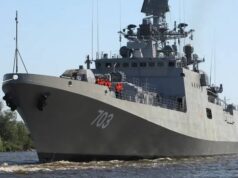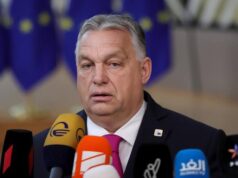UK anti-ship systems in Ukraine to become legitimate targets for Russian forces

The Russian diplomat noted the illusory perception of military actions in Ukraine in the United Kingdom
UK long range artillery and anti-ship systems, which the tiny Island nation has promised to Kiev, will become legitimate targets for Russian troops if delivered to Ukraine, clarified Russian Ambassador to the UK Andrey Kelin in an interview.
“All arms supplies are destabilizing, particularly those mentioned by [UK Defense Secretary Ben] Wallace,” he said. They exacerbate the situation, making it even bloodier. Apparently, those are new, high-precision weapons. Naturally, our armed forces will view them as a legitimate target if those supplies get through the Ukrainian border.”
The Russian diplomat noted the illusory perception of military actions in Ukraine in the Island nation.
“I have a feeling that London’s perceptions of what is going on in Ukraine from the military point of view are formed from overly positive reports of the Ukrainian Defense Ministry and the leadership of Ukraine.
If we look at maps that are being published by papers and magazines here, they rely exclusively on Ukrainian sources. They still believe that the Azov battalion is about to liberate Mariupol, that the people’s militia forces have made no progress at all in the Lugansk region,” Kelin said.
Escalatory actions
In Kelin’s opinion, the UK government’s moves made in connection with the events in Ukraine are aimed at further escalation.
“[The UK government’s] perception appears to be similar to the picture seen from [Ukrainian President Vladimir] Zelensky’s shelter. Those ideas serve as a basis for decisions and statements, which, in fact, contradict the reality: [ideas] that more weapons should be supplied to Ukraine, that it will become a game changer, that there is no need for negotiations at this point,” he said.
“This is the position of an ostrich, an attempt to hide your head in sand in a fit of powerlessness and blind rage. Wrong decisions of this kind are very dangerous, because they are aimed at fuelling the conflict and [expose] reluctance to work on settling it. They reveal the desire to do us as much harm as possible.”
He added that “ideas and solutions, expressed, among others, by the UK government, are aimed at exacerbating the situation, at further escalation.”
“The farther from conflict, the more radical the stance becomes,” the ambassador added.
In his words, the Ukrainian authorities have de-facto handed over control over the situation in the country to their Western partners.
“US Ambassador [to Russia John] Sullivan said in a recent interview that the Ukrainian leadership is reluctant to make any practical decisions, it wants someone else to decide for them, most notably the Americans,” he said.
UK media coverage of Azov battalion
The ambassador went on to say that while covering the events in Ukraine, the UK media prefers to turn a blind eye to atrocities committed by militants of the Azov battalion.
“[At first] there were reports here that the Azov battalion is a bad thing, that they are [neo-]Nazis. On the following day, papers started to publish reports about them being true patriots of Ukraine, about them fighting for Ukraine and doing their job. They are being whitewashed. This is the picture shown to the people of the United Kingdom, they have no information about atrocities and crimes committed by the Azov battalion in Mariupol,” he said.
On February 24, Russian President Vladimir Putin said in an early morning televised address that he had launched a special military operation in Ukraine in response to a request for help from the leaders of the Donbass republics. He stressed that Moscow had no intention of occupying Ukrainian territories, the sole purpose of the operation, the leader stressed, is the demilitarization and denazification of Ukraine.
The United States, the United Kingdom, the European Union and some other countries responded by imposing sanctions on Russian individuals and companies.




